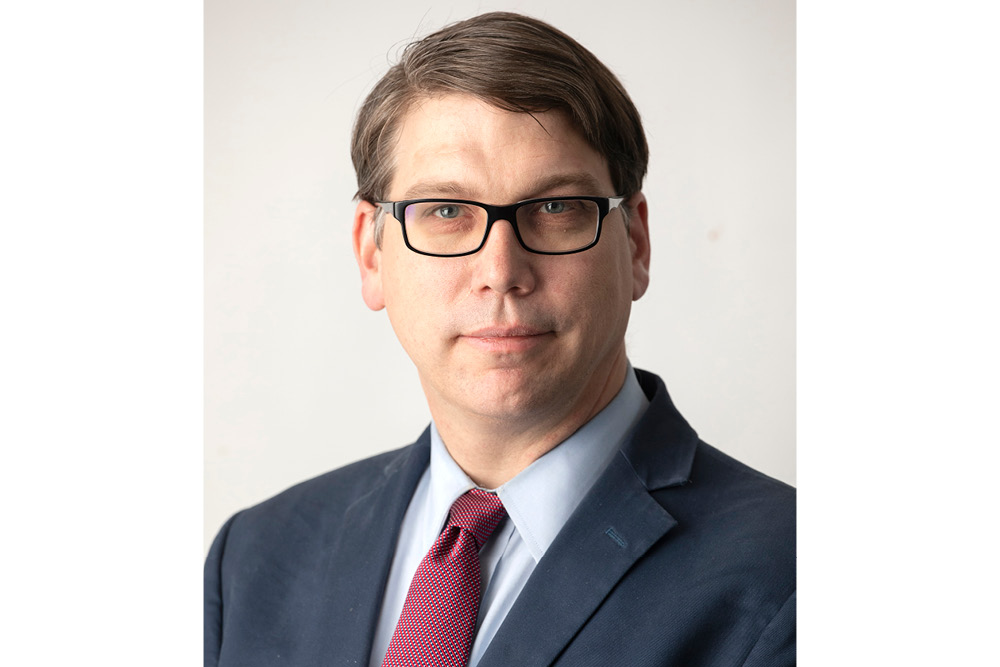
Julian E. Barnes is a national security reporter for the New York Times who covers the country’s intelligence agencies. Before moderating a November 2020 Zócalo event asking “What Do We Do Now?,” Barnes called into the virtual green room to chat about why the whoopie pie belongs to Maine, the COVID-19 guilty pleasure that recalls Belgium’s sugar bread, and life (and death) as an amateur chicken farmer.
One thing people might not know about you is that you’re a chicken farmer. How did you acquire your first coop?
There is a company in the D.C. area called RentaCoop. You can rent two chickens for a month, and you can try it out. I rented, and then, I eventually rented to own.
Those first two chickens were, unfortunately, victims of the chicken slaughter that I’ve recounted in my piece for your fine publication.
Do you have a favorite chicken among the current crop?
Amy Henhouse is definitely our favorite. She delivers a nice blue egg. And she has been with me for a couple years now and has survived attacks and has proven to be a smart chicken. She’s a cream legbar, too.
What is your favorite dessert?
The whoopie pie. There’s a great article in the Wall Street Journal about the battle over the whoopie pie, and whether it’s the state dessert [of Pennsylvania or Maine]. But it definitely belongs to Maine [where Barnes is from]. One hundred percent.
What superpower would you most like to have?
Clearly invisibility. Invisibility is the best superpower if you want to be a reporter and get that fly-on-the-wall scene. It would totally, totally help with the narrative drive of your stories. Maybe ethically a little questionable…
What are you reading right now?
The fiction book right now is A Memory Called Empire by Arkady Martine. And the reason I’m reading that is that I just re-read Dune, which I had read as a kid so long ago. It really held up really well. And then somebody recommended this as another good sci-fi book. For some reason I find sci-fi oddly comforting in this weird pandemic time and a good way to sort of settle my mind.
The nonfiction book I just finished was Chris Whipple’s The Spymasters, which is quite good. It’s based on his interviews with many of the living CIA directors, and basically, is a history of the CIA’s interaction with the White House. And I’m also reading Donald Trump v. The United States, which is by one of my colleagues, Mike Schmidt, which is quite an interesting read, too.
What surprises you most about life in this moment?
I’ve never experienced something where everybody’s life changes. Where we’re not going into schools, and we’re not going into restaurants—or maybe we’re not, or maybe we shouldn’t be. Where we’re all wearing masks. Where, all of a sudden, we don’t shake hands anymore, so we’re all trying to establish our own sort of different cultural greetings; who’s an elbow bumper and who’s a heart puncher? I have never seen American life upended on a mass scale like this.
What keeps you up at night right now?
That’s the classic Washington question that every national security official gets asked at every briefing. Jim Mattis, when he was SecDef, he upended it when he said, “Senator, I’m the guy who keeps other people up at night.”
But we’re in a period of time, which we’re going to talk about in this event this week, of intense politicization of these institutions that are supposed to be fact-finders, truth tellers, objective observers, and sometimes actors, but the core of what our intelligence does is observe the world and report faithfully what that is. There’s been enormous pressure on that world from outside, maybe from within too—to not be objective, not be factual, to be more political. The deepest worry I have in American life right now is how politics is infusing things that used to be apolitical.
What’s been your best guilty pleasure in COVID?
Soft egg bread. We got a bread maker before the pandemic, and we’ve really put it through a workout. As a chicken farmer, I like egg bread because there’s two to three eggs, and then butter, sugar, and bread flour. It evokes the sugar bread of Brussels, which Belgium is famous for. This has been totally responsible for the “19” of my COVID-19.



